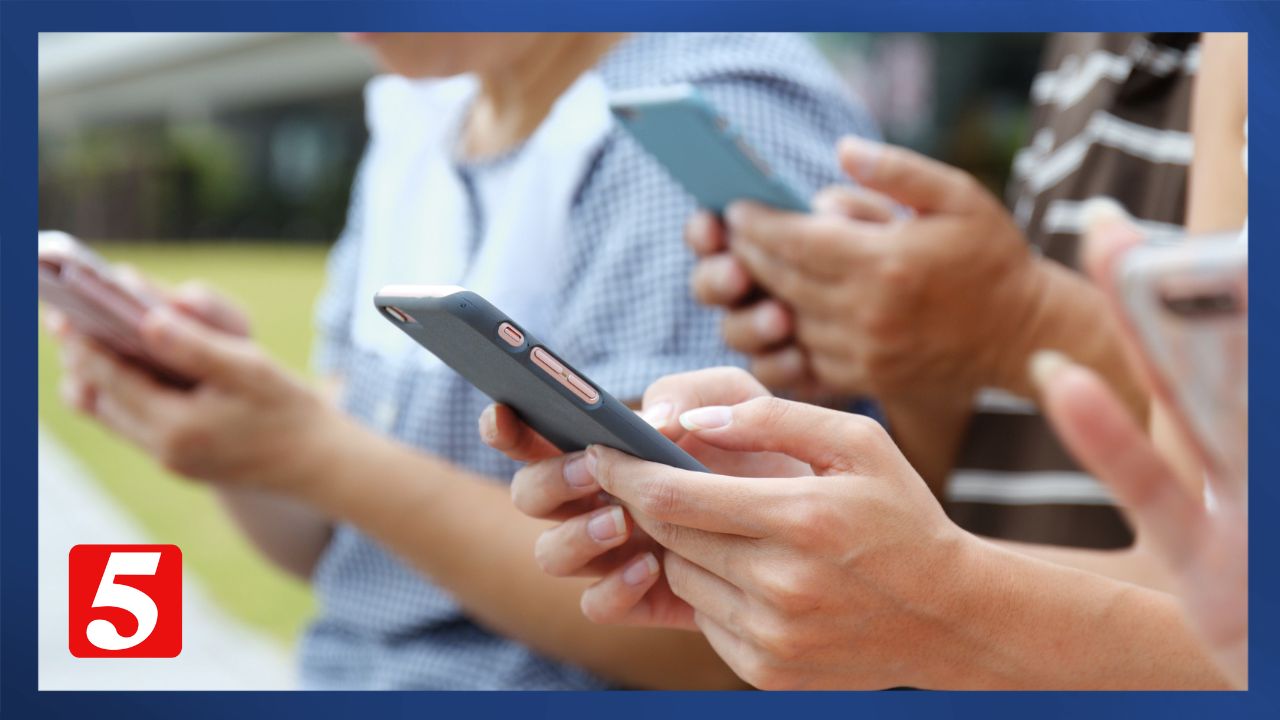NASHVILLE, Tenn. (WTVF) — Smart devices have become a part of us. Rarely do we leave our cellphones or smart watches behind. So, when state lawmakers banned them in classrooms -- we heard about it in our newsroom.
Not everyone liked the idea of being so out of touch. But a month into the school year, it seems communication is better than ever.
“Honestly, I thought oh my goodness, this is going to be a real stretch and change for our students especially in the high school. They’ve been growing up with cell phones and technology forever and they almost consider it like an extension of themselves and to take that away, I thought we were going to have a lot of resistance,” said Kristin Wall, a counselor at Mt. Juliet High School in Wilson County.
But the reality of the ban has been much different.
“I had one teacher who said of all the educational policy that they’ve had in their career -- 20 plus years -- they feel this is the one that will impact learning most positively.”
Newschannel 5’s Carrie Sharp heard it too. Science teacher, Diana Tewmey, says she’s gotten back valuable teaching time with cell phones sidelined.
“Not having to get them back on track, re-center them, re-teach material has been a game changer.”
But fewer distractions are just part of the success story.
“I feel like they are talking to each other more. Whenever we do group work and we have conversations together – they are much more willing. They are willing to participate, they are willing to talk to each other, they want to build those relationships more,” said Tewmey.
Students echoed her thoughts, saying classmates are actually talking to each other more, not just turning to their phones and “doom scrolling” in free moments.
“It’s really fun because all of it is coming from our brains, not like I saw something on my phone. It’s like what do we really think about during the school day? Those are the ideas we’re having conversations over,” said senior Chloe Pedje.
“I feel like we’re planning more things now because we’re actually talking. Our class just planned a trip to Fall Creek Falls just yesterday,” said Faith Danella, also a senior.
Both students said there are some downfalls of the ban –
“A lot of time I listen to music to help me focus and that was a big change,” said Danella. But both agreed that the positives have outweighed any negatives.
The early success has counselor, Kristin Wall, wondering if the ban on so-called smart devices might just benefit young minds in more ways than intended.
“I’m curious to see how test scores, discipline, overall needing referrals to me - how this is impacted long-term. I think it’s fabulous.”
Under the law, every school district was allowed to create its own rules on how to enforce the smart device ban.
At Mt. Juliet High School, students can use their phones between classes and at lunch. And in the event of an emergency, phones are in the classroom with the students – just out of reach from bell to bell. There are exceptions in the law for those with medical conditions that require monitoring.
Do you have more information about this story? You can email me at carrie.sharp@newschannel5.com.

During a week when it seems that frustration is the prevailing sentiment felt across middle Tennessee amid ongoing power outages, Forrest Sanders brings us a story of love, faithfulness and a remarkable family... plus, a little humor on the side. Enjoy!
- Carrie Sharp




